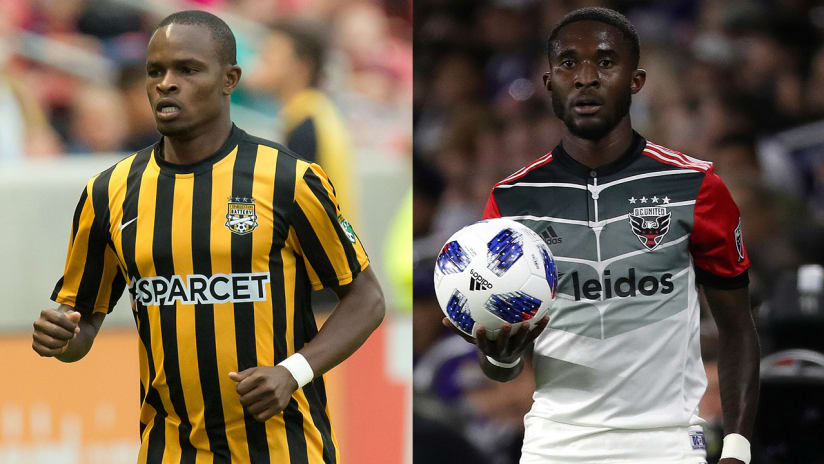WASHINGTON – Jamaicans Dane Kelly and Oniel Fisher blazed entirely different paths to D.C. United’s roster this season.
Kelly turned pro back home, made the jump to the USL and then India in order to prove himself MLS-worthy. Fisher took advantage of his high school’s soccer reputation to go to America as a college player before landing in MLS with Seattle via the SuperDraft.
But they both started with the same thought process: Bite hard at the first opportunity.
“That’s kind of the mentality of the Jamaicans – whatever I get first,” Fisher explained to MLSsoccer.com. “You just have to close your eyes and be like, whatever it is, I’m going to go get it.”
That hunger, combined with a shortage of significant domestic league infrastructure and a relative lack of foreign suitors competing for players, may turn Jamaica and other Caribbean nations into the next major battleground in MLS talent development.
MLS teams have always scouted Caribbean players, and the region has produced stars like Stern John, Donovan Ricketts, Shalrie Joseph, Ezra Hendrickson and Damani Ralph.
But as the league expands, the eagerness Fisher describes could lead to an even greater search of the region by MLS teams looking to round out their squads with low-risk, high-ceiling talents. Especially if – like Fisher and Kelly – they already hold US green cards and don't require international roster spots.
“A lot of the characteristics of the Caribbean players are essentially the characteristics you want to look for of an MLS player in a long season: physicality, pace,” said Stewart Mairs, D.C. United’s director of soccer strategy and analysis. “But they’re generally very raw because they’ve not had that academy grounding. So guys like that, if you can afford to incorporate into your squad, and have the time to do so, I think you’ll probably see more of them.”
Mairs thinks D.C., who also have Reggae Boyz striker Darren Mattocks on their roster, could take chances on other unheralded Caribbean players once the team is operating its USL side out of its new suburban training facility, planned for Leesburg, Va. And he admits the appeal of a move to America or Canada can allow MLS teams to sign Caribbean players for less money than domestic players of a similar skill level.
“Teams do that every day, and they should do that,” Mairs says. “They need to find the best value for the clubs. Not to an extent where they’re extorting the guy. But if that player wants to come and play in the US and live in the US and have a better lifestyle and run for his dream, then great. If he’s talented enough, then great for us.”
Kelly and Fisher both say some of their Jamaican counterparts simply didn’t get the necessary exposure to make a move to MLS or the USL, though Kelly believes that is changing.
“I think it’s getting better in terms of how many players are leaving Jamaica to come in the States,” Kelly said. “So that’s really good for the country.”
Visibility is improving. MLS launched its Caribbean Combine in 2014 to gather a couple dozen of the region’s best young players in front of MLS coaches and scouts.
And the newly-announced Concacaf League of Nations will give players from across the Caribbean considerably more opportunities to play competitive matches at an international level during FIFA-sanctioned international windows.
“Anything that can increase the exposure to potentially scout players is good for the league,” Mairs said.
“But for us who already have quite a good handle [on the region], we’re hoping that those players go to the Concacaf Nations [League] and actually play poorly. Because for the past six months we’ve been scouting them, and after the tournament the price goes up by 10 times,” he quipped.













